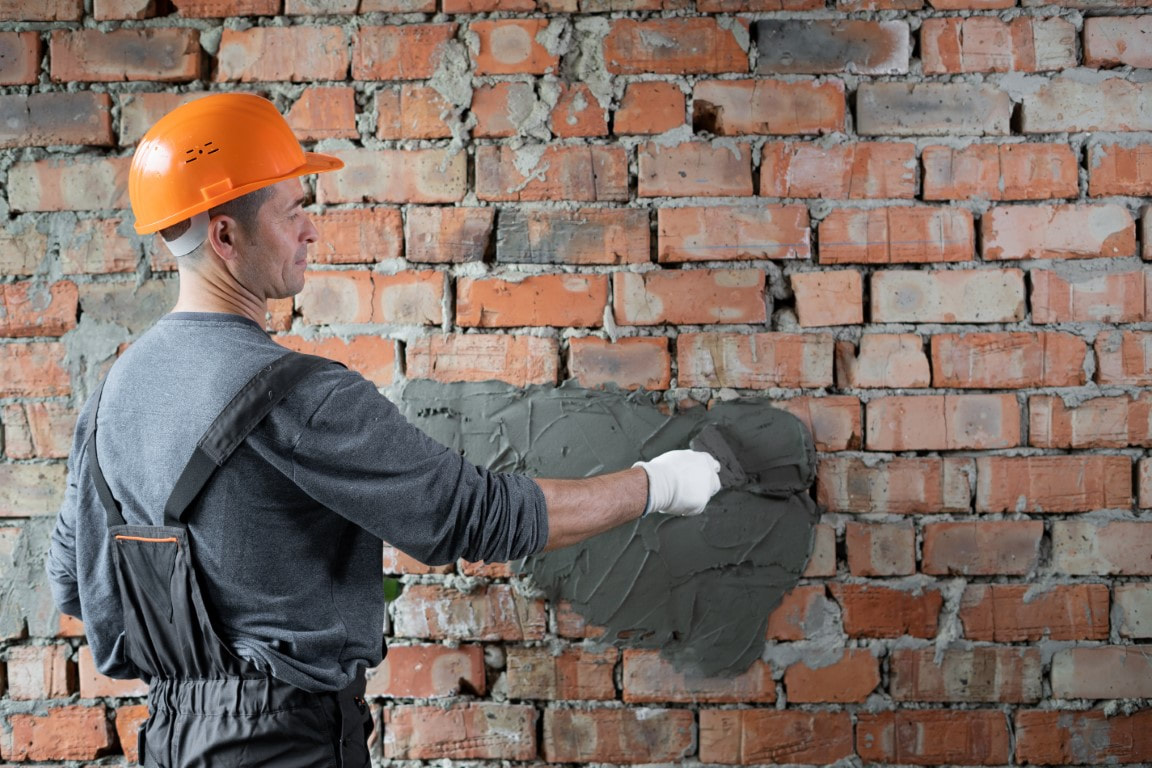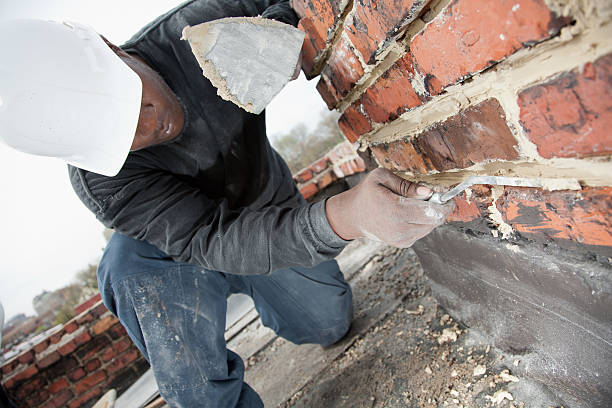Excellent Roofing Contractor Services for Your Home
Excellent Roofing Contractor Services for Your Home
Blog Article
Unlocking the Keys of Lasting Masonry Construction Practices for Eco-Friendly Buildings
Among the myriad approaches to environment-friendly building, sustainable stonework building stands out as a reliable and durable approach that holds a wealth of untapped possibility. From the choice of products to ingenious building methods, the tricks to accomplishing sustainability within stonework building and construction are multifaceted and interesting.
Benefits of Sustainable Stonework Construction
Accepting sustainable masonry construction methods not only decreases environmental impact however also offers lasting financial benefits to builders and neighborhoods. By using materials like recycled blocks, blocks, and rocks, building contractors can dramatically reduce the carbon footprint of their tasks while advertising resource performance. Furthermore, lasting stonework construction strategies, such as correct insulation and thermal mass residential or commercial properties, can enhance power effectiveness within buildings, causing decreased functional expenses over time.
In addition, the durability and strength of masonry frameworks add to lasting economic advantages. Buildings constructed making use of sustainable stonework practices often need much less repair and maintenance, translating to cost savings for contractors and residential property proprietors. The durability of stonework products also guarantees that frameworks continue to be stable and safe, reducing the need for regular improvements or replacements.
Eco-Friendly Masonry Materials
Making use of environmentally friendly stonework products is a pivotal step towards improving the sustainability of building and construction methods and minimizing environmental effect while taking full advantage of lasting financial advantages. Lasting masonry materials are sourced, created, and used in a way that minimizes total ecological influence. Products such as recycled blocks, redeemed rock, and lasting cinder block are coming to be significantly preferred selections for eco-conscious builders. Recycled bricks, for instance, not just draw away waste from land fills but also require less power to generate compared to new bricks. Recovered stone offers a distinct aesthetic appeal while reducing the need for new quarrying. Sustainable concrete blocks include recycled accumulations and might include enhanced insulation residential or commercial properties, adding to power effectiveness in structures.
Furthermore, all-natural materials like adobe, rammed planet, and straw bales supply excellent thermal mass homes, reducing the demand for heating and cooling down power. These materials are usually locally readily available, advertising regional economies and minimizing transportation-related carbon emissions. By choosing environment-friendly stonework materials, building and construction projects can considerably lower their environmental impact and add to the development of much healthier, more sustainable constructed settings.
Energy-Efficient Masonry Methods
Energy efficiency plays a crucial role in enhancing the sustainability of masonry construction practices. One key energy-efficient masonry technique is the usage of thermal mass, which entails incorporating premix concrete dense materials like concrete or block right into the structure's framework to take in and store heat.

Innovations in Sustainable Stonework
Recent innovations in sustainable masonry techniques have produced innovative methods that are reshaping the building industry. One such advancement is the growth of self-healing concrete, which utilizes germs installed within the concrete to heal fractures autonomously. This innovation not only minimizes maintenance expenses yet also improves the resilience of masonry frameworks, adding to their sustainability.
Another noteworthy advancement is using recycled accumulations in stonework building and construction find here - masonry contractor. By integrating products such as smashed ceramic waste or recycled glass into concrete mixes, contractors can decrease the environmental influence of building tasks while keeping structural stability. This method not just draws away waste from land fills but also conserves natural deposits, making it a crucial advancement in sustainable masonry building
Additionally, the combination of electronic style tools, such as Building Info Modeling (BIM), is reinventing the means stonework frameworks are prepared and built. BIM permits more accurate computations, decreased material waste, and enhanced energy efficiency, ultimately leading to more lasting structure methods. These technologies jointly symbolize an appealing future for lasting masonry construction in the era of eco-friendly structures.
Future Trends in Stonework Sustainability
With the cutting-edge strides made in sustainable masonry practices, the future fads in stonework sustainability are poised to further change the building and construction market. One of the key trends forming the future of masonry sustainability is the enhanced integration of modern technology. Improvements complete concrete such as Building Information Modeling (BIM) and digital fact simulations are being used to optimize stonework building processes, causing decreased material waste and enhanced energy performance in buildings.
Furthermore, the growth of novel lasting materials is readied to play a substantial function in boosting the eco-friendliness of stonework building. masonry contractor. Innovations like self-healing concrete, recycled aggregates, and bio-based binders are getting traction for their capacity to minimize ecological influence while keeping structural honesty

Final Thought
To conclude, lasting stonework construction techniques offer various benefits for environment-friendly structures. By making use of green materials and energy-efficient techniques, masonry can add to a much more lasting constructed setting. Technologies in lasting stonework are continuously being developed to further improve the environmental performance of buildings. Looking towards the future, the trend of masonry sustainability is anticipated to expand, bring about even more eco pleasant and energy-efficient building and construction techniques in the years to find.
Report this page